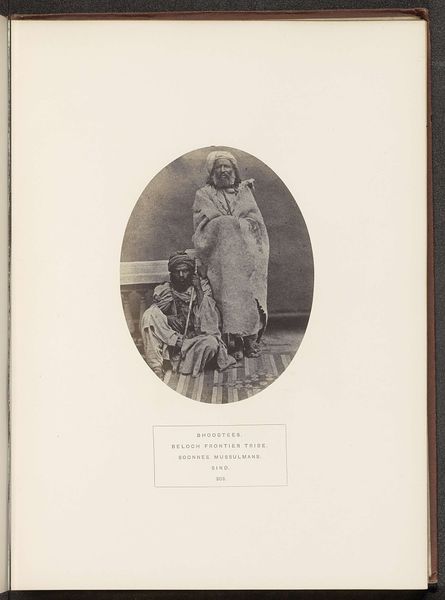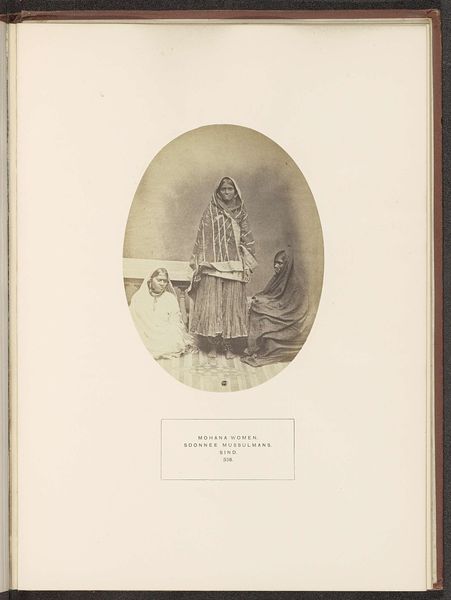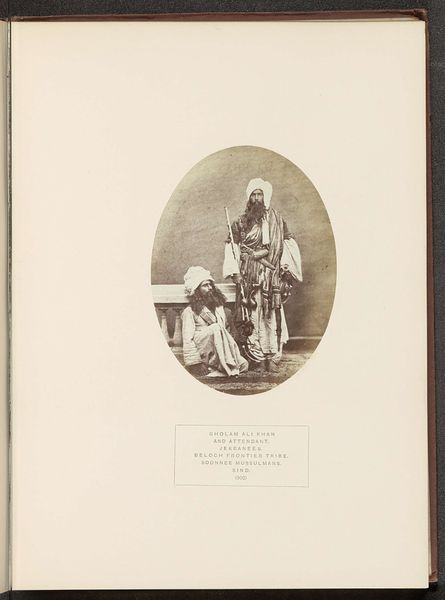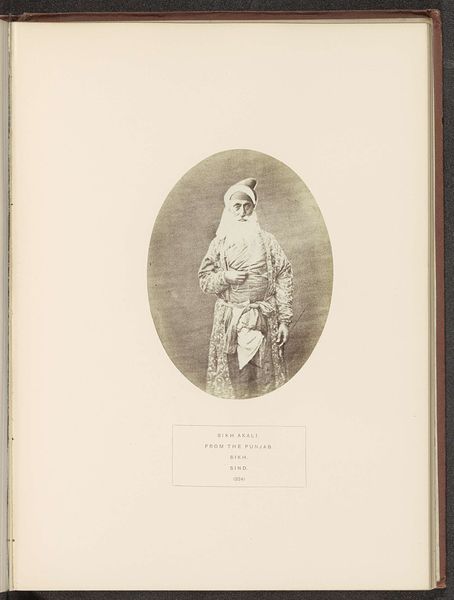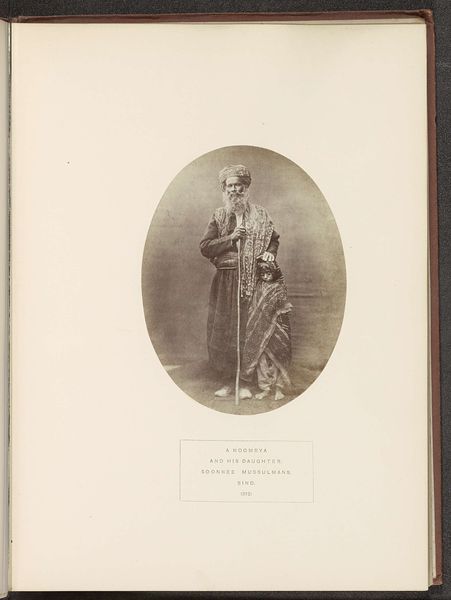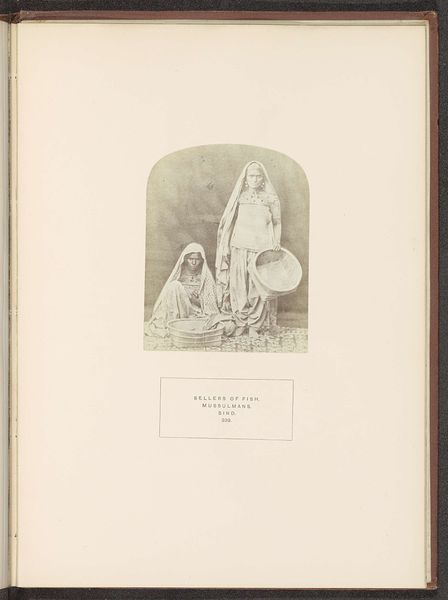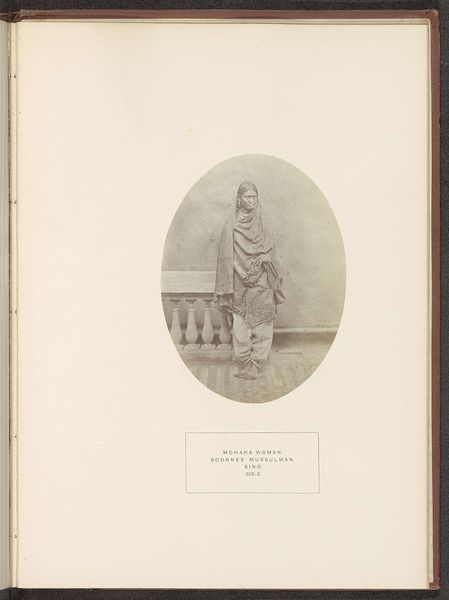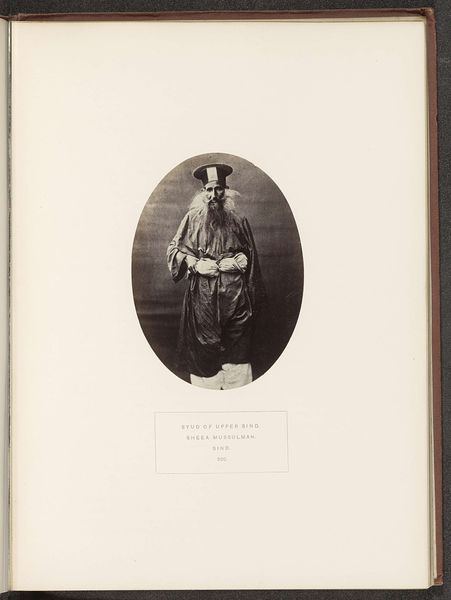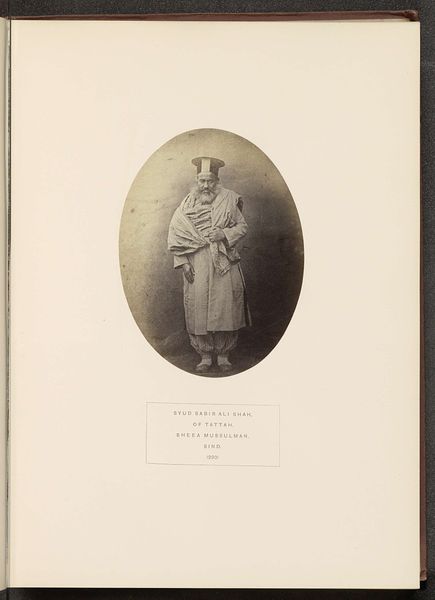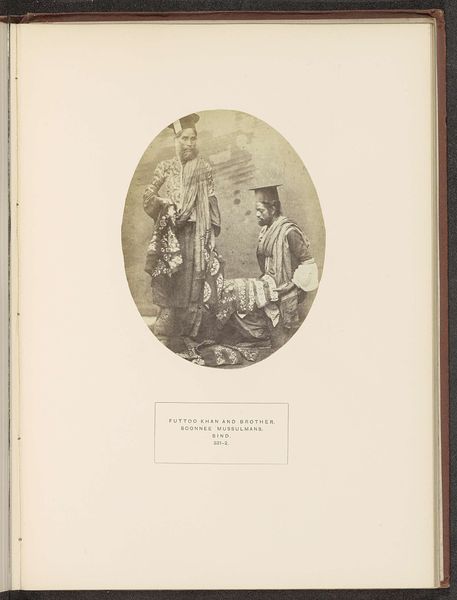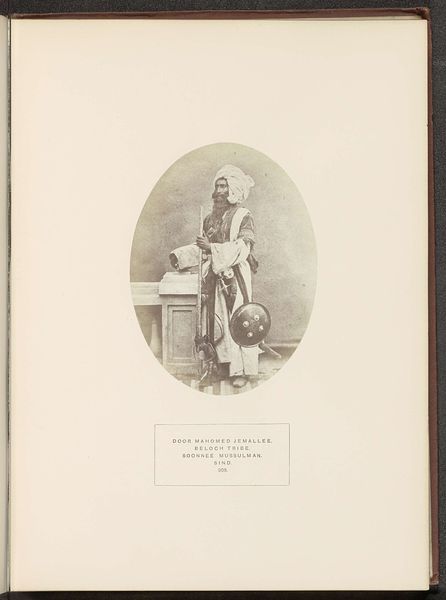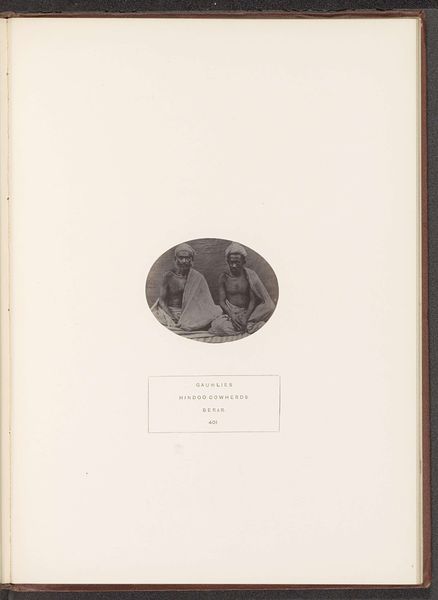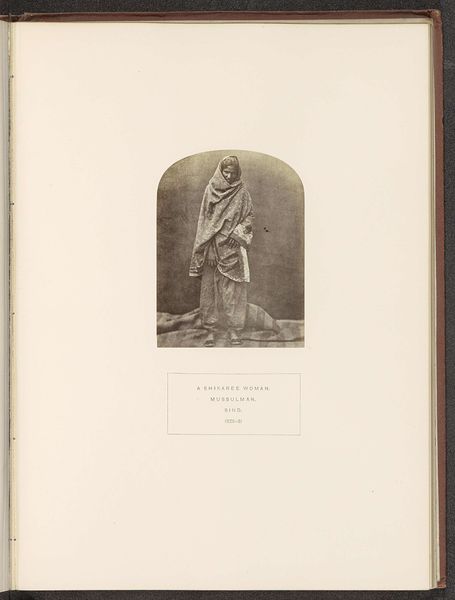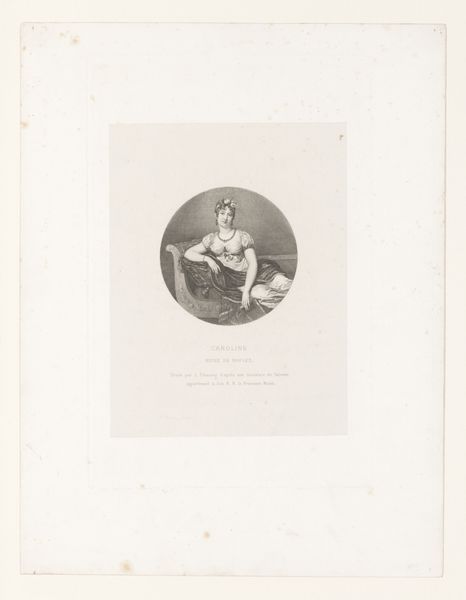
photography
#
portrait
#
asian-art
#
photography
#
realism
Dimensions: height 146 mm, width 109 mm
Copyright: Rijks Museum: Open Domain
This photograph of a Babra woman and her son was taken by Henry Charles Baskerville Tanner, sometime in the 19th century. As a photographic print, the image exists because of a complex interplay between optics, chemistry, and labor. Consider the preparation of the light-sensitive emulsion, carefully applied to the paper. Then, the long exposure time required, demanding stillness from the subjects. Finally, the developing process, a delicate dance of timing and temperature. Each stage reliant on skilled work. The resulting sepia tones speak to a specific historical moment, when photography was both a scientific marvel and a tool of documentation. This portrait, categorized as depicting the "merchant class", offers a glimpse into the social structures of the time. Ultimately, appreciating this photograph means acknowledging not only the artistry of Tanner, but also the many hands and processes involved in its creation. By understanding these material conditions, we gain a richer perspective on the image itself.
Comments
No comments
Be the first to comment and join the conversation on the ultimate creative platform.
